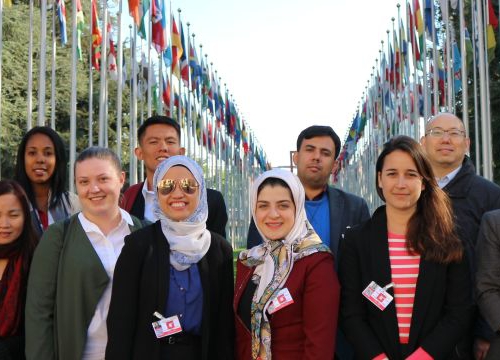Academics Trained on the Geneva-Based Human Rights Mechanisms
23 May 2019
During one week, 12 academics from China, Cuba, Indonesia, Iran Malaysia and Vietnam deepened their knowledge and expertise of United Nations (UN) human rights mechanisms during a customized training course co-organized with the Norwegian Centre for Human Rights of the University of Oslo.

Insight into the Work of UN Human Rights Mechanisms
Through a series of workshops, practical exercises, discussions with leading experts, UN officials and diplomats, as well as direct observation of the Universal Periodic Review process and the work of the UN Committee against Torture, participants acquired a rare insight into the functioning of Geneva-based human rights mechanisms.
‘One of the core objectives of this training course is to provide participants with the tools to link theory with practice and to fully grasp with the political and legal nature of the Geneva-based human rights mechanisms’ underlines Kamelia Kemileva, former Special Projects Manager at the Geneva Academy.
‘It is the third year that we co-organize it and we look forward to renewing this rewarding experience with the Norwegian Centre for Human Rights in the years to come and continue to make UN mechanisms more accessible and understandable for academics’ she adds.











